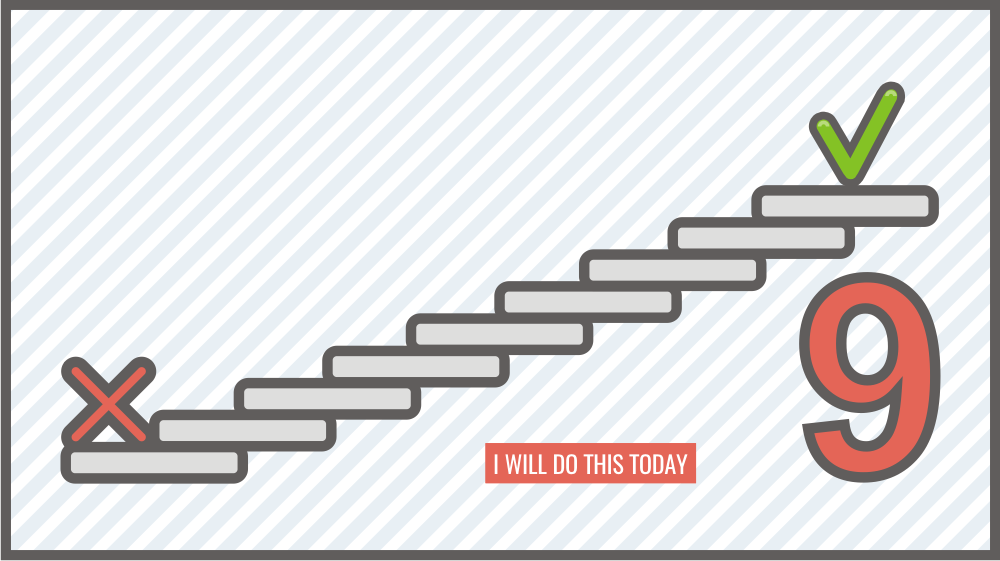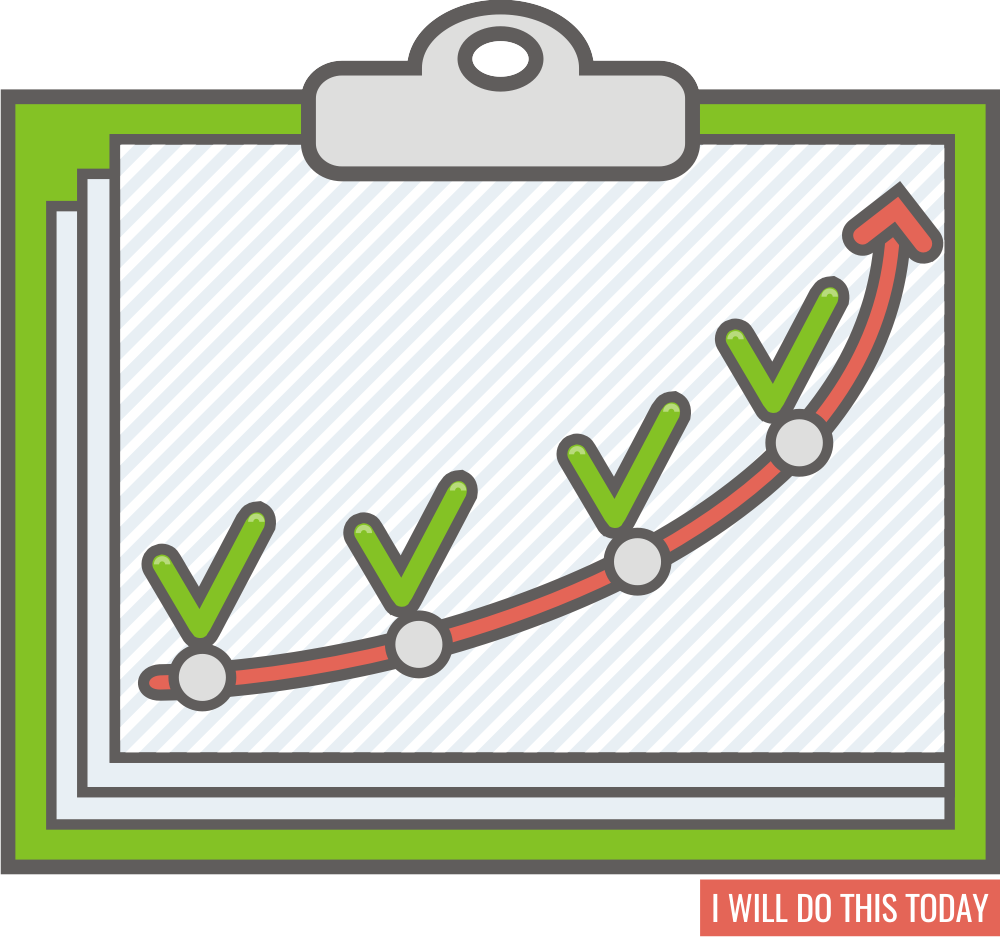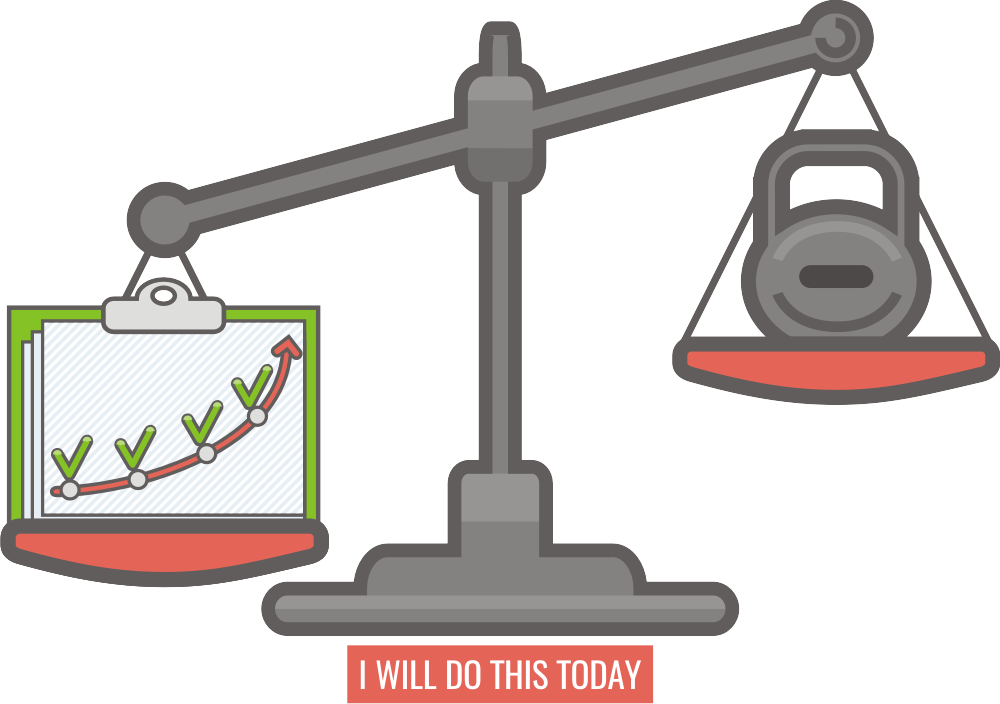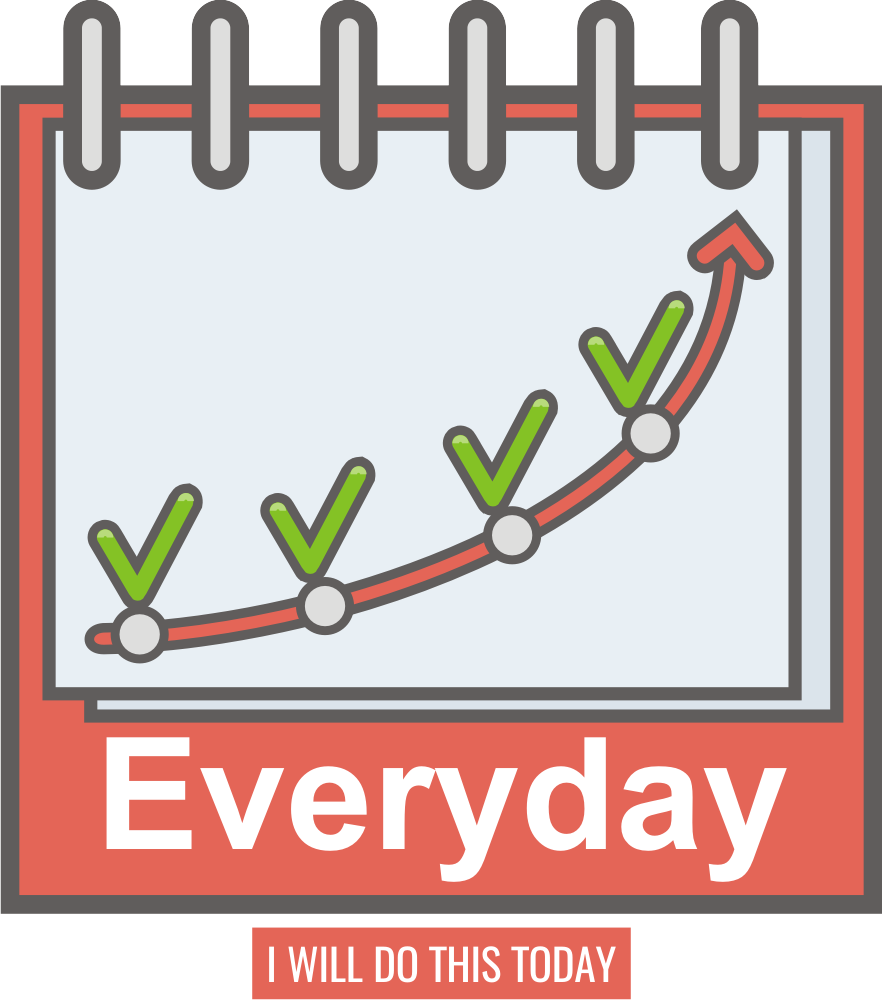9 Simple Steps To Becoming More Productive
 When was the last time you felt truly productive – you accomplished everything you planned and even more?
When was the last time you felt truly productive – you accomplished everything you planned and even more?
We all had days like this. So why are we not having them on a daily basis?
What keeps us from being the best we can be?
According to Penny Zenker, author of The Productivity Zone, there are two factors that hinder our productivity – procrastination and perfection.
These two are the extremes and you need to avoid them. To be productive, you need to be in the zone between procrastination and perfection.
What Is Productivity?
 Simply put, personal productivity is completing the actions that move you closer to accomplishing your goals in a manner that brings balance and ease into your life.
Simply put, personal productivity is completing the actions that move you closer to accomplishing your goals in a manner that brings balance and ease into your life.
Productivity is about the effective and efficient use of all of your resources. Resources include your time, people, knowledge, information, finance, equipment, space, energy, materials.
According to Riddle, there are essential requirements to become productive:
- Setting meaningful and measurable objectives
Your objective shouldn’t be just about achieving some tasks from your to-do list. You need to know your “Why”.
What is the purpose of doing what you do? Earn more money, develop professionally, learn new skills – you need to know why you are doing it. In addition, the end goal of your work should be inspiring to you. Otherwise, you will never start the process and will delay the work to the very last moment, only to do a mediocre job.
- Evaluating the objective into actionable items
In order to achieve your goal, you need to take massive action. Dreaming about something will not get you to it. Therefore, you need to evaluate your work into actionable steps, which you can then easily accomplish.
An actionable item has no dependencies. It is possible to complete this task in a single step.
Keep your focus on the big picture, but look at the little tasks you need to do, each of which will have a the purpose of getting you closer to what you want to achieve.
- Completing the individual actionable items
Now that you have a list of small tasks, it is most likely huge. Most people give up at this point.
Why?
It is just too overwhelming to do everything. You don’t know when you will have the time and by the look of that long list you have – most likely never.
What you need to do is evaluate realistically how much time each action will take you and schedule time for it in your calendar.
This is crucial to your success.
If it isn’t scheduled, you will never get to it. It will always be left for later…and the reality is that “later” never comes.
- Reviewing and acknowledging your progress
Don’t get caught up in your work so much that you never stop and appreciate your success. You need to take the time and look back at your work – evaluate how you have done so far and what is left to be done.
How else would you know if you are productive or not?
Create a success journal, or simply evaluate your actions at the end of each day. What worked, what didn’t? What can you learn and how can you apply this knowledge in the future?
Why Is Productivity Important?
 Some people are naturals at personal productivity, others have to learn it.
Some people are naturals at personal productivity, others have to learn it.
In today’s busy world, there aren’t enough hours in the day to allow us to meet all of the demands we have. By being more productive, you can do more with your time.
You can also perform better – productivity will allow you to achieve better results of the stuff you do with your time.
Being more productive will result in higher income in the long term. You will simply find the time to do the important tasks – those that generate income.
Being on top of your to-do list will also allow you to do something different. It is always good to add variety to your lifestyle.
Lastly, by being productive you will feel in control. You will no longer wonder what to do next and if you are on the right track. You will have a clear path to success.
 The Best Tips On How To Be Productive On A Daily Basis
The Best Tips On How To Be Productive On A Daily Basis
1. Understand Your Body
Everyone is different – some people work best at night, other perform much better in the early morning, etc. You need to know what works best for you and adjust your schedule in a way, so that you do your most important tasks when you perform best.
2. Keep Your Body Hydrated
This is probably the easiest to implement straight away, but also the easiest to leave behind. If the water content in your body drops even by a percent, this affects the way your brain works and your productivity drops fast. It is easy to ‘forget’ because most of the time we don’t feel dehydrated.
Nowadays, we are just used to feeling this way so we don’t pay attention. You need to create a habit that automatically ensures that you have water in your system. For example – keep a bottle of water on your desk and drink often from it. As soon as it gets empty – refill it.
3. Take Breaks
Having said that, you need to make sure that you do not burn out. Take short breaks every half an hour to ensure that your brain can remain fresh and focus longer.
4. Create A Routine That Works For You
Once you know when you perform best, it is useful if you follow a certain routine. Turning off your mobile notifications, limiting other noise and disturbance, getting a cup of coffee, etc. If you do that every day your body and brain will automatically get “in the zone” before you start work and you will be more productive.
5. Prioritize
You need to know which tasks are important – helping you achieve your goals and which are the ones that are urgent. Adjust your schedule and working method, so that you work on what is important first.
6. Batch Together
Knowing all the tasks on your to-do list, you can arrange them in a way to perform similar tasks together. This will save you time and will help you be more productive by simply focusing on similar tasks – one after the other.
7. Create A Simple And Easy-To-Follow To-Do List
Having said that, your to-do list should be really simple to follow. As mentioned above, you need to evaluate each objective and see it as a compound of easy-to-follow steps. Your goal when doing a to-do list should be making your workload less complicated. This way you will avoid delaying it, because of how complex everything seems.
8. Focus On One Task At A Time
This is an important one – you cannot be productive if you are doing multiple tasks at the same time. Multi-tasking is preventing you from completing your objectives quickly and effectively.
In other words, when working on one task, avoid combining it with other things.
Note that batching work together is quite different. It refers to setting a system, whereby you do similar tasks one after the other, but never at the same time.
9. Brainstorm On A Spare Piece Of Paper
Have you ever worked on something and all of a sudden an idea popped into your mind. What did you do? If you are like most people, probably you started doing this new task before you forgot about it, thinking that it will only take a second. But it didn’t. You probably didn’t even finish it completely because you thought of another thing. It can be an endless cycle, leader to nowhere else than the road to becoming overwhelmed and frustrated.
The solution is simple – have a pen and a piece of paper next to you while you work. If you want to be even more organized you can dedicate a specific notebook, or you can take notes digitally – whatever works best for you. The point is to note down the idea for later and thus stay focused on the current job. After you complete your current activity, you can go ahead and adjust you to-do list to incorporate those new ideas.
References:
1. Forbes – 10 Easy Ways To Be More Productive At Work
2. Robert C. Pozen – Managing Yourself: Extreme Productivity
3. Daniel McGinn – Being More Productive
4. Joshua Riddle – What Is Personal Productivity
5. Nicholas Bloom – To Raise Productivity, Let More Employees Work from Home
6. Ron Friedman – What You Eat Affects Your Productivity
7. Annie McKee – How Power Affects Your Productivity
8. Ric Merrifield, Jack Calhoun and Dennis Stevens – The Next Revolution in Productivity
9. Gretchen Gavett – Executives’ Biggest Productivity Challenges, Solved
10. Cheryl Conner – What’s Keeping You Out Of The Productivity Zone? These Two Things